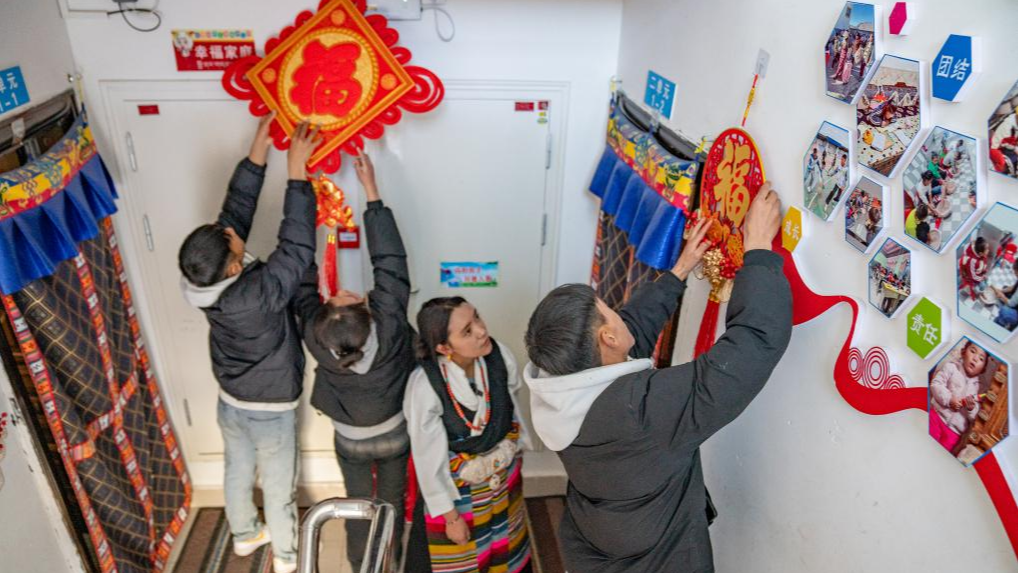Editor's note: Liang Junyan, a special commentator on current affairs for CGTN, is a researcher at the Institute of History Studies of China Tibetology Research Center. The article reflects the author's opinions and not necessarily the views of CGTN.
It is the common pursuit of human society to care for human life, value and dignity and to realize human rights for all. Chinese culture has always emphasized respect and care for human beings and their self-worth. After the founding of the People's Republic of China in 1949, with the peaceful liberation of Xizang in 1951 and the implementation of democratic reforms in 1959, the people in Xizang became the masters of their own destiny. In the past 73 years since Xizang's peaceful liberation, the local economy and society have developed by leaps and bounds, and the cause of human rights has also undergone radical changes.
However, in the face of such achievements, the United States and some Western countries continue to use their powerful public opinion machines to mislead international public opinion and smear China with lies, falsely claiming that the Chinese government "forcibly sends millions of Tibetan children to boarding schools" or "infringes on the Tibetan people's minority rights, such as the right to local language and culture and freedom of religion or belief." These lies not only contradict the facts and hurt the feelings of the people of Xizang but also constitute a serious provocation to international law and international relations.
The boarding school system, which was established under the compulsory education law of China to provide educational opportunities for dispersed school-age children, is one of a number of schooling models that have long been in place throughout the country and is not a "colonial boarding school" in the narrow sense that targets Xizang or any other specific region. The boarding schools have successfully solved many of China's educational development problems, producing a large number of talented people and achieving great success.
As Abraham Lincoln said, "You can fool all the people some of the time, and some of the people all the time, but you cannot fool all the people all the time." The lies propagated by the United States may temporarily deceive some individuals and pose challenges to China's development. However, in the end, they are ineffective in achieving their intended goals.
Xizang will not stop its development and will not close the door to the outside world. I believe more and more people will come to Xizang to know the real situation and the lies will be shattered in front of truth and facts eventually.
In response to human rights issues, some commentators vividly describe that "the United States has been using a telescope to view its own human rights problems, but a magnifying glass to nitpick the issues of other countries." This is a typical manifestation of American double standards and hypocrisy and its hegemony and power politics.
In fact, the United States' human rights situation is riddled with flaws. Despite this, the country labels itself as a "human rights defender," often employing "human rights stick" tactics and engaging in "human rights diplomacy," a stance that is widely unpopular. Today, human rights tragedies are not only unfolding within the United States, but new humanitarian disasters are also occurring in many other parts of the world due to the hegemonic, unilateral, and interventionist behavior of the United States.
The international community has observed China's advancements in human rights, with the Chinese people holding the greatest authority over human rights development in Xizang. Therefore, it is not the United States' place to dictate their actions. Instead, the United States should prioritize addressing human rights issues within its own borders.

